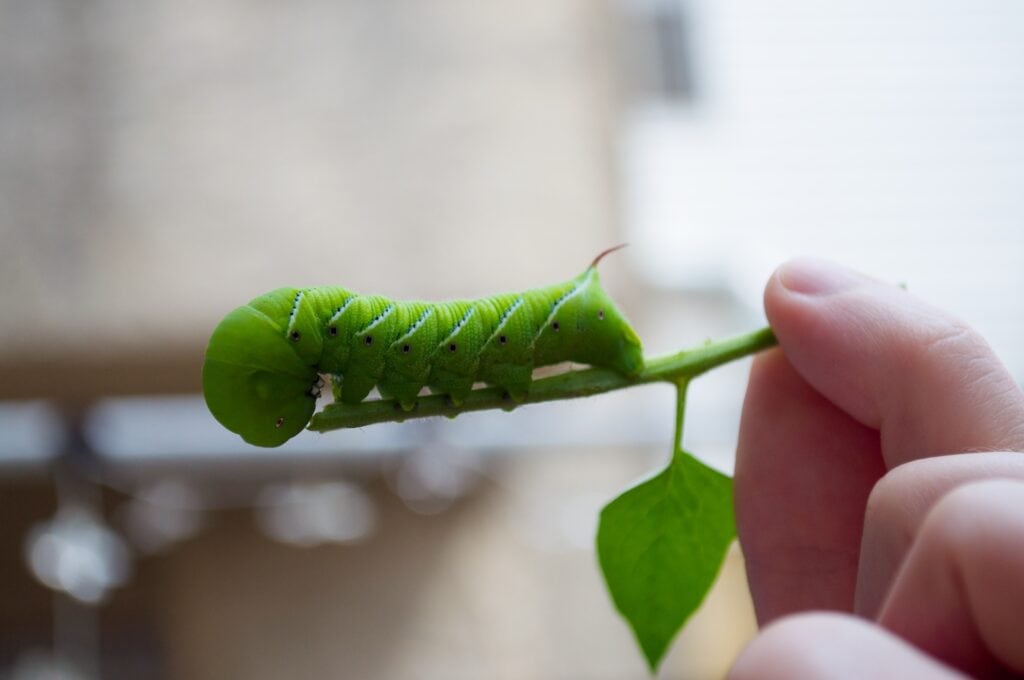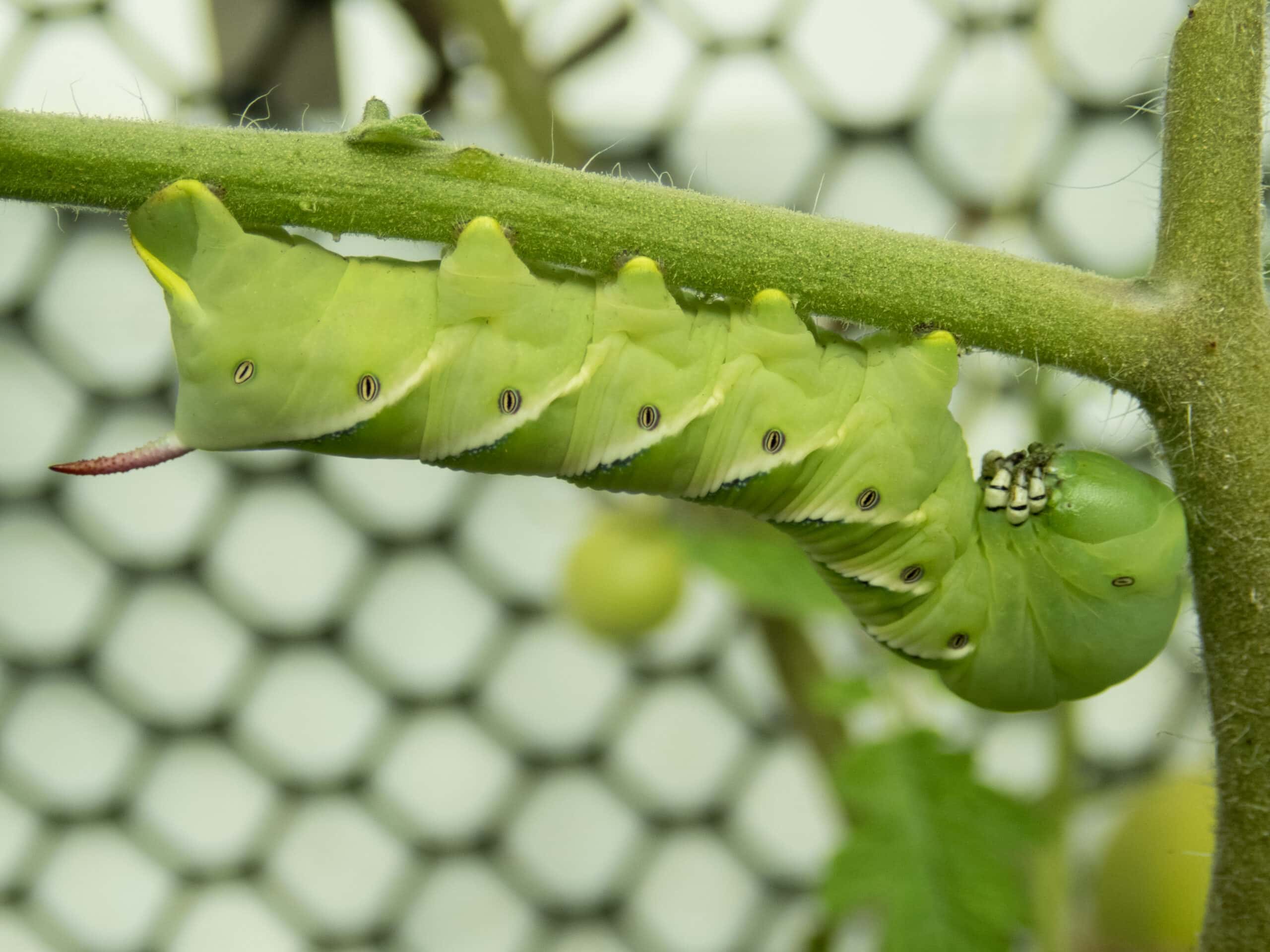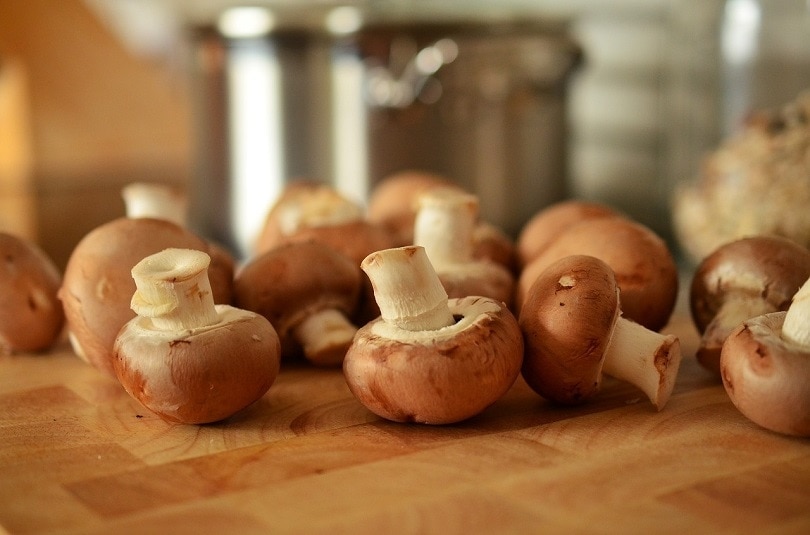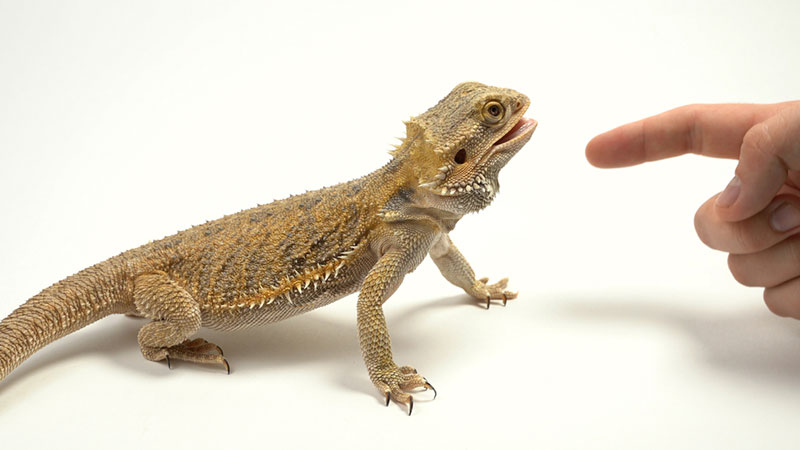Can Bearded Dragons Eat Hornworms? Vet-Approved Nutrition Guidelines
Updated on

Bearded Dragons are great pets, but sometimes it’s hard to determine what you need to feed your bearded friend. If you’ve been wondering if they can eat hornworms, you’re in luck; bearded dragons can eat them. But, they’re not the healthiest of snacks, so moderation is important. In the article below, we’ll explain everything you need to know about Bearded Dragons and hornworms.
What Are Hornworms?
Hornworms are the caterpillars of a large group of moths known as Sphynx or Hawk moths. They are rather large, green beasts, around 3-4 inches long when fully developed. Recognizable for the row of eye-like markings along their sides, and a prominent spike or “horn” on their tail. They are popular amongst predators for their juicy, fatty insides, and unpopular amongst farmers and gardeners for their voracious appetites.

Can Bearded Dragons Eat Hornworms?
Bearded Dragons can eat hornworms, but they shouldn’t be offered daily. While hornworms aren’t dangerous to your Bearded Dragon, they contain a lot of fat. Bearded dragons need only a little fat, so high-fat foods aren’t the best choice. Hornworms should be given to your Bearded Dragon in moderation as a treat, and they should eat no more than two hornworms a week.
What to Watch Out for When Feeding Hornworms to Your Bearded Dragon
While nothing in hornworms is dangerous for your dragon, how you feed them can be. One thing you need to watch out for is the size of the hornworm you’re feeding your Bearded Dragon.
The Hornworm’s Size
If the hornworm is too large, it can become lodged in the lizard’s throat, causing them to choke. Even if the large hornworm makes it through your Bearded Dragon’s esophagus, the danger might not be over, and the worm could still become lodged in their intestinal tract.
Food lodged in a Bearded Dragon’s intestinal tract leads to impaction, a very serious issue. Impaction eventually leads to paralysis and death. Impaction is not a rarity and is, in fact, very common in Bearded Dragons. To avoid feeding your Beardie a hornworm that’s too big, you should never feed them a hornworm bigger than the gap between their eyes.

The Hornworm’s Bite
Many people like to give their Bearded Dragons live food. This activates the dragon’s hunting instincts and excites them. Some owners have given their beardie more food than they can eat at once so they don’t have to feed them again later.
The problem with this is that hornworms bite, so if you put in more live hornworms than your Beardie can eat at once, they’ll ignore the worms after they’re full, and eventually, the worms may try to bite the lizard. Hornworm bites can’t kill a Bearded Dragon, but they cause a lot of stress for them, and stress is one of the top killers in reptiles.
What Should You Feed a Bearded Dragon?
Bearded dragons are omnivores and require diverse diets, including meat, vegetables, and even a little fruit. Your Beardies’ age heavily impacts the kind of diet you should feed them; a juvenile Bearded Dragon requires a diet of 20% vegetables and 80% meat.
Bearded dragons reach adulthood at 18 months, at which point you should feed them once to twice a day, using a ratio of 20% meat and 80% vegetables. When feeding your Beardie, you shouldn’t leave uneaten live insects in their enclosure for longer than a few minutes, but vegetables can be left in for up to 30 minutes. This allows your Beardie to eat at their own pace while preventing overeating.

1. Insects
When it comes to live insects to feed your Bearded Dragon, you have several options. Mealworms, hornworms, cockroaches, earthworms, super worms, and butter worms all make great choices. The best choice, however, is crickets. Besides being a great source of protein, live crickets provide stimulation for your Beardie. You can breed crickets at home to have a ready supply, but be warned – they are noisy and can easily escape!
You shouldn’t rely on just one insect to feed your pet; variety is essential for your Beardie’s diet. Most worms and other insects can be purchased at pet stores or local breeders; you should never feed your Beardie wild insects. Getting them from a pet store ensures they don’t carry parasites or pesticides that could harm your dragon.
2. Vegetables
Your lizard needs more than just meat, and most of their diet should be made up of vegetables, particularly those of the leafy green variety. Luckily there’s no shortage of vegetables your Beardie can eat. Kale, raw cabbage, mustard greens, turnip greens, and collard greens are all good options. You can also give them squash, endive, carrots, artichoke hearts, parsnips, raw bell peppers, celery, Bok choy, peeled cucumbers, raw okra, and chicory.

3. Fruit
Finally, you can also feed your Beardie small amounts of fruit. Under no circumstances should you feed your dragon fruit every day, but some now and then as a treat is perfectly fine. Apples, peaches, apricots, strawberries, mango, pineapples, papaya, watermelon, and guava make excellent Beardie treats.
Final Thoughts
As you can see, it’s not a great idea to feed your Bearded Dragon too many hornworms, especially when so many other options are better for your scaly friend. However, you can give the hornworms to your pet as a juicy treat, but never more than one or two a week. The best way to keep your beardie healthy and content is by feeding them a well-balanced diet of leafy greens, insects, and fruit as a treat.
See Also:
Featured Image Credit: Jumpstory











